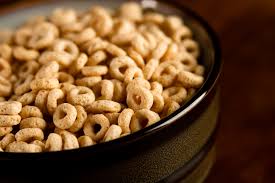General Mills (GIS 1.76%), the packaged foods giant that owns Cheerios, Häagen-Dazs, Yoplait, and other well-known brands, recently raised eyebrows by launching a new brand of premium cereal that costs $13 per box.
Morning Summit -- which features ingredients like almonds, cranberries, cherries, and pumpkin seeds -- targets health-conscious consumers who have shunned sugary cereals over the past few years.

Image source: General Mills.
It also complements General Mills' expansion of its cereal business and its focus on boosting its gross margins. But will consumers actually buy this new brand of premium cereal, which has already been marked up to between $20 and $30 at certain retailers, when an average box of cereal only costs about $3?
Understanding General Mills' cereal business
General Mills generated $2.25 billion in cereal sales in the United States in fiscal 2019, which stayed roughly flat from 2018 and accounted for 23% of its North American retail sales and 13% of its total revenues.
That growth was anemic, but the other four segments of the North American retail unit -- meals and baking, snacks, yogurt and other, and Canada -- all posted revenue declines in 2019. This indicated that General Mills' efforts to stabilize its cereal business with new products, including new sugary cereals like Reese's Puffs, Hershey's Kisses, and Trix Trolls, were paying off.
That stabilization defied the notion that younger and more health-conscious consumers were crushing the market for sugary cereals. However, General Mills still needs to win over those customers with healthier products to meaningfully boost its cereal revenues again.
During last quarter's conference call in December, General Mills noted that sales of Blueberry Cheerios were robust, and a new "heart health" campaign for the brand boosted Cheerios' retail sales 4% annually in the first half of fiscal 2020. It plans to capitalize on that momentum and launch a new oats-and-honey version of Cheerios Oat Crunch in the second half of the year.
Understanding General Mills' gross margin strategy
Therefore, it wasn't surprising to see General Mills launch a new health-oriented cereal brand. However, its pricing might have surprised investors unfamiliar with the company's strategy of hiking prices to offset slower shipments.
Like many packaged foods companies, General Mills is struggling to grow its shipments in a saturated market amid shifting consumer tastes and competition from private-label brands. Over the past year, its price hikes have stabilized its organic sales growth while protecting its gross margins.
|
Metric |
Q2 2019 |
Q3 2019 |
Q4 2019 |
Q1 2020 |
Q2 2020 |
|---|---|---|---|---|---|
|
Organic sales |
(1%) |
1% |
(1%) |
(1%) |
1% |
|
Adjusted gross margin |
34.5% |
34.2% |
35.3% |
35.2% |
35.3% |
Source: General Mills quarterly reports.
General Mills expects its organic sales to rise 1%-2% for the full year, and its adjusted EPS to grow 3%-5% on a constant currency basis. Those growth rates seem tepid, but General Mills is faring significantly better than many of its industry peers, including Kraft Heinz (KHC 2.62%) -- which is still struggling with tumbling sales and contracting margins.
Kraft fumbled because its previous CEO, who stepped aside last year, cut prices to win back shoppers. That strategy failed, and its sales and margins contracted -- indicating that even discount shoppers weren't interested in tired brands.

Image source: General Mills.
The opposite approach, which General Mills is currently attempting with Morning Summit, is "premiumization" -- whereby older brands and product categories are rebooted for higher-end customers. We've seen AB InBev (BUD 0.29%) and Procter & Gamble (PG 0.17%) adopt that strategy for their Budweiser and Pampers brands, respectively, in China -- which turned commoditized products into higher-end goods.
But can General Mills sell premium cereal?
General Mills has already taken a few steps into the "premium" market with its acquisitions of Annie's, which sells organic food, and the premium pet food maker Blue Buffalo. The introduction of Morning Summit cereal marks an extension of that strategy.
A single new cereal brand won't move the needle for General Mills. But if it succeeds, General Mills could expand the brand and launch other premium cereals or "premiumize" other product categories -- which could boost its organic sales and gross margins over the long term.









